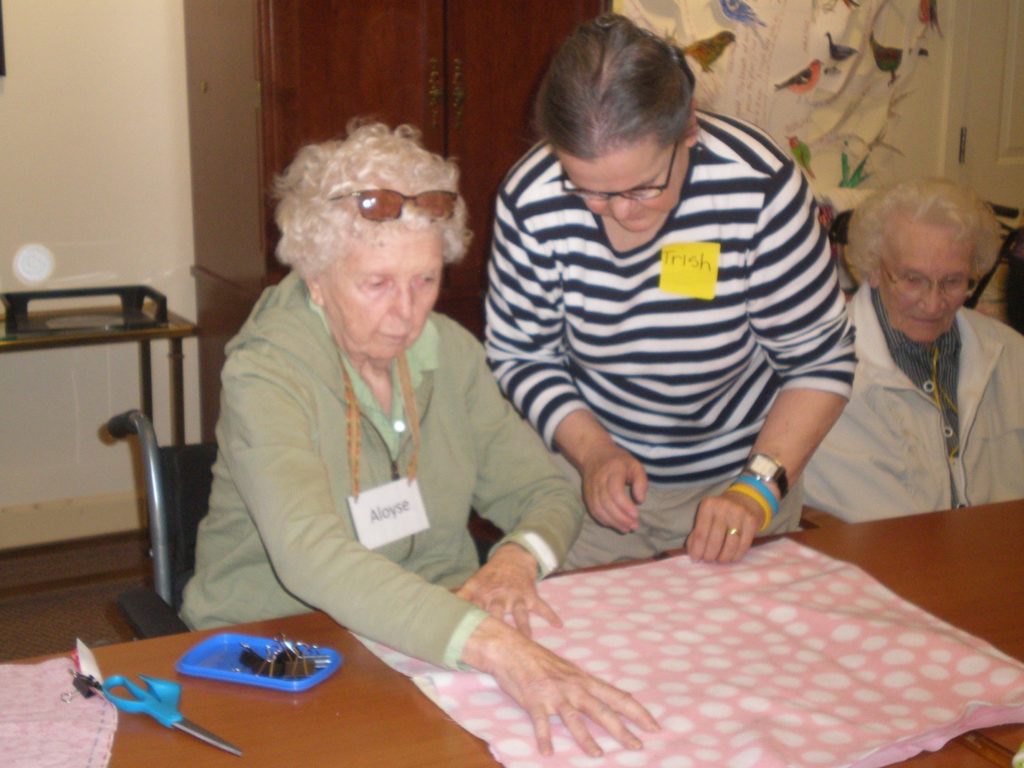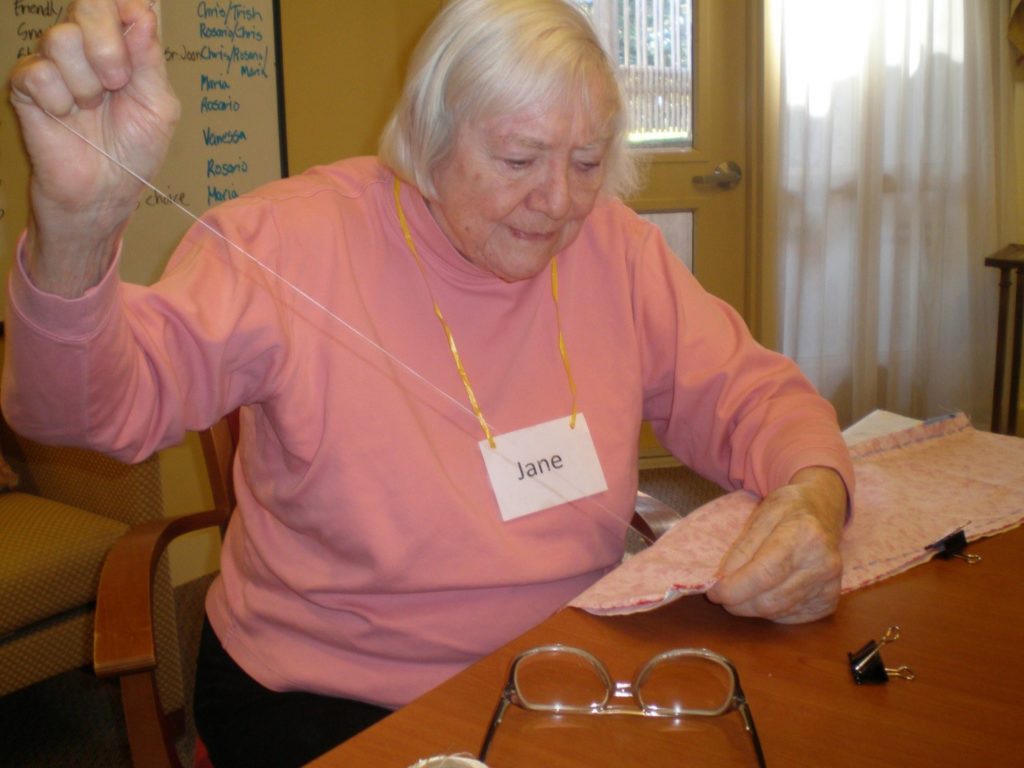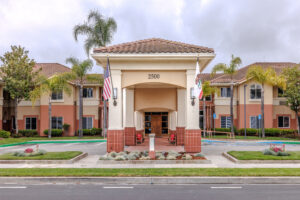The words “dementia” or “Alzheimer’s” can often elicit fear for us. We instantly think about what a loved one will lose if we hear that diagnosis. Dementia doesn’t have to mean you are losing out on your life. Cognitive skills may diminish, but every person can grow. That is the fundamental philosophy behind I’m Still Here®, a pioneering, engagement-focused approach to dementia treatment and a core element to our memory-care programs at Elder Care Alliance.
“I’m Still Here® is a powerful tool for overcoming the stigma of cognitive impairment. Instead of dwelling on the losses of dementia, it focuses on the belief that every person has an innate capability to learn and succeed.”
Adriene Iversonn, Elder Care Alliance President & CEO
Patient-centric Alzheimer’s Care
‘I’m Still Here: A New Philosophy of Alzheimer’s Care,’ published in 2009, is a guidebook to Dr. John Zeisel’s treatment ideas and explores ways to connect with memory care patients. How? By focusing on their abilities that don’t diminish with time, such as understanding music, art, facial expressions, and touch. The book describes neuroscientific evidence for this approach and the major underlying social shift necessary for its acceptance. This shift requires replacing the conventional wisdom of despair with hope – the acknowledgment that each of us can make a positive difference in the well-being of persons with dementia and Alzheimer’s by the way we communicate, engage and relate to those living with this condition.
As a result, persons living with dementia are fully supported, confident, and able to learn and create throughout their lives. The four tenents of the philosophy are grounded in honoring a person’s dignity, respect, independence, and choice. When you focus on the abilities and strengths that remain available to each person, you can create purposeful and enriching relationships and connect the individual with the larger community.
Our caregivers learn to read the behaviors of residents living with dementia as indications their needs aren’t being met. They can then respond by offering activities to engage the resident in an emotionally satisfying way, which causes the behaviors to subside rather than medicating behaviors away.
Montessori For Seniors
The Montessori method, initially developed for young children, is also gaining traction among Alzheimer’s caregivers interested in an individualized, patient-centered approach to care. In Montessori schools, teachers create lessons and activities that most appeal to the students’ interests and are specifically designed to engage their senses. The theory is that the more students connect with the world, the more their brains engage.
Montessori-based methods of dementia programming have a similar goal: engage the senses to help Alzheimer’s and dementia patients and loved ones rediscover the world around them. For example, residents of one Elder Care Alliance memory care neighborhoods made blankets for babies in the neonatal unit of a local hospital. Some sorted fabrics and patterns while others sewed. Then, they hand-delivered the blankets with a note attached to each one offering words of wisdom for the new mothers.


I’m Still Here Inside Elder Care Alliance
Our AlmaVia of San Francisco community was one of the first to implement this memory care program in 2012. Team members working in memory care complete a six-month on-site training program, including intensive training in Alzheimer’s disease and related dementias, communication techniques, and life enrichment.
Caregivers are also more engaged with those they care for and their work. Creating art, teaching Spanish, or even baking are unique contributions caregivers can do to forge new and deeper relationships with residents. A resident may not remember who the caregiver is. Still, they will feel positive emotions based on the associated good interactions. Elder Care Alliance team members engage residents in meaningful, life-enriching experiences throughout the day, resulting in a thriving community where residents live to their fullest potential.
Memory Care at Elder Care Alliance
Elder Care Alliance has served seniors and their families in California for more than 20 years through five different senior living communities. Our mission has been centered on caring for seniors for 25+ years — putting their well-being and dignity at the forefront of all we do.
If you’d like to learn more about our memory care program, please contact us or take our Care Needs Assessment.




















